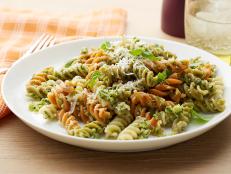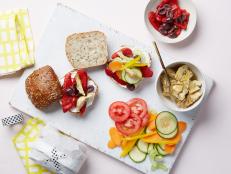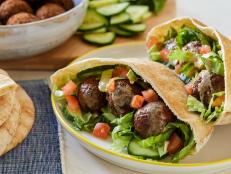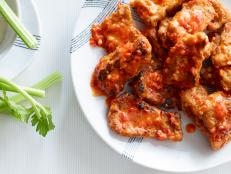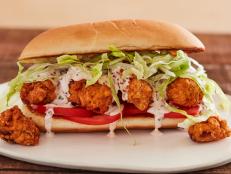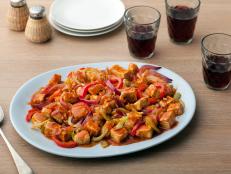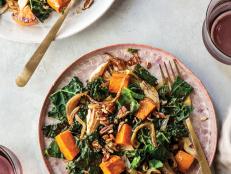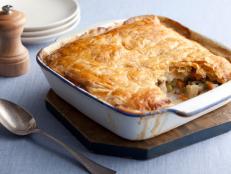Vegging Out with Karen Page, Author of The Vegetarian Flavor Bible

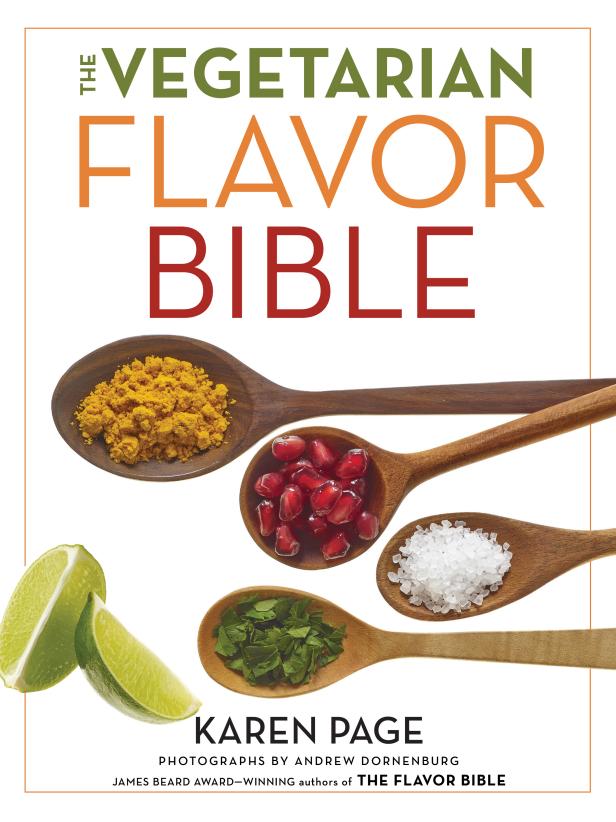
When it comes to cooking for your palate, you can count on husband-and-wife duo Karen Page and Andrew Dornenburg's Flavor Bible. The tome not only received an award from the James Beard Foundation, but was named one of the 10 best cookbooks of the past century by Forbes. Now Page and Dornenburg are back, but this time they've gone vegetarian. Their 554-page reference book, The Vegetarian Flavor Bible, uses the same approach to plant-based cooking as their bestseller. In addition to the history of vegetarianism, you can find an A-Z guide to herbs, spices and other seasonings, learn which techniques work best for which veggies and a stock list of flavor affinities for each ingredient. For instance, soba noodles have 16 suggested combinations like marrying them with greens, lime, sesame oil, soy sauce and tofu. Sound good? We think so. Not so much a cookbook as it is a culinary guide, the Bible is an indispensable manual for anyone looking to eat a varied, vegetable-driven diet.
It's an interesting intersection of a lot of different trends that are exploding at this point in time. One is the history of vegetarianism (which is in the book) — it is absolutely fascinating how long people have been eating a plant-based diet. The other is a development of gastronomy and seeing how leading French chefs have really embraced this. If you go back to the 1970s and the advent of nouvelle cuisine, when they were looking to lighten-up traditional sauces, stocks, and other parts of the cuisine, this was part of the direction. Or chefs like Jean-Georges [Vongerichten] with his book, Simple Cuisine. He was ahead of the curve in his thinking. The book did really well in the '90s and there was a lot of adaptation, but didn’t catch on like it did now with the other leading chefs. Though, there are the guys now who are embracing everything meat in large quantities, on the other side you have chefs who really get the haute cuisine, like Daniel Humm who says around 70 percent of his menu is vegetarian. That is really coming out of gastronomy and the aesthetic sensibility and that is trickling down into society.
"Vegetarian" and "vegan" tend to make some people very nervous. We have a friend who is in his sixties and goes to this Italian restaurant where they’ve now put a "v" on the menu next to the soup he always orders. He doesn’t want to eat it anymore. His wife told him it’s the same soup, but he seems to think it means something more. "Vegan" suggests it is all about lack. I like to use "plant-based" or "plant-strong" since it’s more about what you're celebrating.
Because I'm lactose intolerant, I was especially interested in what people said about non-dairy milks. In the old days, when I had my 4 o'clock lull, I would have a cappuccino. When I switched to almond milk, I noticed it didn’t foam so well — I stopped my habit altogether. And then I was talking to someone who had tested that a 50 percent combo of coconut milk and hemp milk gives a nutty flavor — and it foamed up! That's what we’re learning, how to use these great products. We're still figuring out which ones foam best, or how they taste in your oatmeal or soups, or if they'll evaporate. The experimentation with that is just beginning, and we're going to see a lot of innovation in plant-based ingredients and cooking.
Obviously you want to start with what you love. Your palate is going to be different than mine — if you love eggplant, flip to the eggplant page and you'll get your creative juices flowing. I would read the list and see what makes your mouth water.
Wow, so many. Some are obvious and it's embarrassing to say that it was a huge "Aha!", but some are like that. I was eating pasta sauce two ways, my whole life — red or cream sauce. The idea to puree vegetables to create a sauce just blew my mind. There is a sidebar in the book on pureed broccoli inspired by Chef Chris Eddy who learned from Alain Ducasse. Until I tasted this dish it never even occurred to me [to puree vegetables], or that you could do it with any other vegetable.
I think people underrate greens. I grew up liking spinach, but learning it's one of the most nutrient dense, I just find it miraculous. And kale is 16 percent protein. You could technically eat nothing but kale and get all the protein you need.
Unfortunately, I met a number of people who are vegetarian, who are not necessarily healthy eaters. When we first became vegetarian, we went in that direction—over-relying on cheese and eggs. Once we started evolving away from there, we got a lot happier with our diet. So don’t over-rely on cheese and eggs, pick some other staples you love. If you are a vegetable person, get some nice variety in there. This may sound corny, but Dr. Joel Fuhrman’s G-BOMBS (Greens, Beans, Onions, Mushrooms, Berries and Seeds) are the most nutrient dense foods that you should eat everyday. I keep that in the back of my mind when I’m ordering a meal. Go for nutrition and balance. Eat a varied diet. Make yourself happy.
Kiri Tannenbaum is a graduate of Le Cordon Bleu Paris and holds an M.A. in food studies from New York University where she is currently an adjunct professor. When her schedule allows, she leads culinary walking tours in New York City and is currently at work on her first book.























